“Bill will work to investigate how Raytheon Technologies’ subsidiary Pratt & Whitney was approved for almost $100 million dollars in varied tax incentives to build a fossil-fuel-intensive airplane parts plant here.”


“Bill will work to investigate how Raytheon Technologies’ subsidiary Pratt & Whitney was approved for almost $100 million dollars in varied tax incentives to build a fossil-fuel-intensive airplane parts plant here.”

The late freeze in spring 2021 caused millions of dollars in damages throughout the region, as well as price hikes and supply chain issues for many local farmers and distributors. How worried should they be about WNC’s tumultuous weather?

Whether by hiking the debris flow pathway of a landslide or reading arcane scientific articles, Karin Rogers dedicates herself to understanding complex scientific data so she can translate that information for ordinary people to understand.

“Maggie Ullman Berthiaume is the only City Council candidate with environmental or climate credentials, and she has two qualities we need: 1) leadership on environmental issues and 2) a proven ability to work with the city.”

“Trees are our No. 1 defense against a warming world and, here in Asheville, we’re on a disturbing trend toward canopy loss. Every tree counts.”
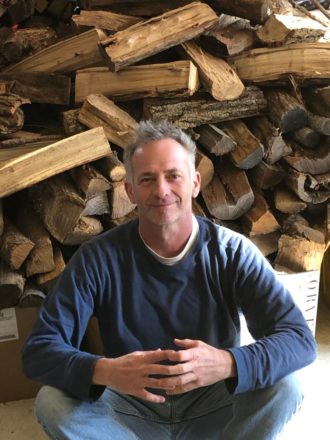
“By the end of the decade, I predict that … Newbies who, in 2022, called out longtime residents as NIMBYs for opposing unbridled development will, by 2029, be NIMBYs themselves.”

The founder of Ray’s Weather Center speaks about the local forecast service’s growth over the years, how meteorologists handle the area’s tricky topography and what weather sayings carry a grain of truth.
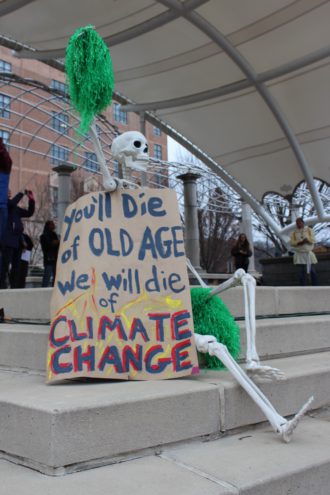
In fiscal year 2019-20, the most recent year for which data is available, the city emitted the equivalent of roughly 18,000 metric tons of carbon dioxide. Its target for the year was approximately 15,600 metric tons of CO2, about 15% less than the actual figure.

White nose syndrome, a fungal disease first seen in Western North Carolina in 2011, has reduced some local bat populations by as much as 95%. And climate change poses a long-term challenge to their habitats and survival.

“Right now, there’s a historic opportunity to invest $3.5 trillion in our communities by passing the Build Back Better deal.”

“What is the point of envisioning the future if, when the future arrives, the plans are changed and can’t be counted on? People lose trust.”

“Providing tax inducements and infrastructure to bring industries here that are not part of the real solution, but are actually part of the ongoing problem, is something that those who truly seek peace, justice and sustainability cannot support.”
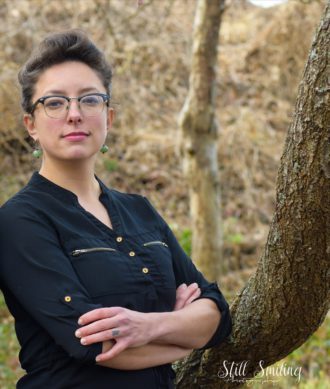
Starting Friday, Sept. 24, local organizations can submit projects in the following categories for grants from the federal funds: affordable housing, care for aging residents, climate change, city infrastructure, domestic violence prevention and assistance, food systems, homelessness services, public engagement, revenue losses, small business recovery and workforce development.

The largest single grant of $4 million will support broadband infrastructure expansion in unserved areas of the county. Brownie Newman, chair of the Buncombe County Board of Commissioners, said that investment would leverage an additional $6 million from the state of North Carolina and private broadband providers.

“Western North Carolina will soon experience environmental degradation because of our legislators’ inability to act on climate policy.”
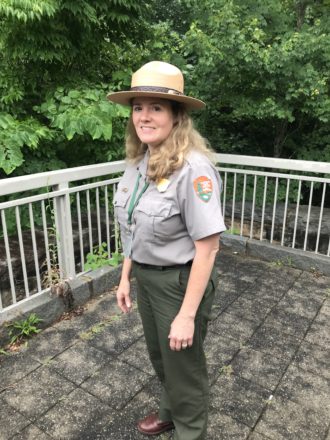
Working in the National Park Service has taken Tracy Swartout all around the country. But in many ways, her new role as superintendent of the Blue Ridge Parkway, based at the service’s office in Asheville, is a homecoming. Swartout grew up in Columbia, S.C., and has many fond memories traveling along the park’s 469-mile route […]

“One million species face extinction by 2050, including the red-winged blackbird, which travels through Asheville and the Arctic Refuge.”
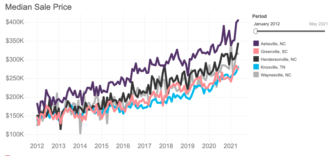
According to Redfin, a nationwide real estate brokerage, the average real estate budget for an outsider moving to Asheville was $615,500 as of April, 31% higher than the average local budget of $469,000. That disparity between outside and local buyers was greater than in either Charlotte or Raleigh.

“I call upon locally important environmental groups to take a stand on this issue in this time of emergency climate crisis.”

“Ultimately, favoritism is handed toward developers and bottom lines, while major impacting projects are slipped past under the radar. People don’t get a fair chance to oppose such, let alone win.”
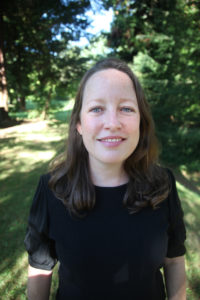
“Can we allow for growth and address our affordable housing needs while also combating climate change and maintaining the character of our neighborhoods?”